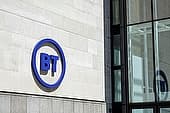Home > Broadband > News > Government funded broadband reaches three million
Government funded broadband reaches three million
MORE than three million homes and businesses have now been given access to superfast broadband as a result of the efforts of Broadband Delivery UK (BDUK).

The Government programme aims to ensure broadband connections of more than 24Mb are available to 95% of the UK population by 2017.
Launched in 2010, BDUK caters to the areas that would otherwise be considered "commercially unviable" - which back then translated to an estimated six million households.
But some in areas we wouldn't necessarily consider all that remote have complained that they're being ignored by both BDUK and the operators' fibre expansion schedules.
On target, sort of
In January the National Audit Office predicted that BDUK's efforts should see coverage reach 90% by June 2016, a good six months ahead of schedule.
Today's figures seem to back that up - but as we've mentioned before, the deadlines for targets like these have tended to slip.
Originally everyone in the UK was supposed to have broadband of at least 2Mb by the end of 2012 - and yet by the end of 2014, Ofcom said 3% of UK premises couldn't even access that.
Earlier this year Defra weighed in, saying that the new target - basic broadband of 2Mb for all by the end of 2016 - was outdated, and that the definition of "basic broadband" should be upgraded to 10Mb.
It's not surprising then, that BDUK moved their initial date for getting superfast broadband to 90% of premises from the end of 2015 to the end of 2016.
More, more, more
And yet it's not like there isn't an appetite for superfast broadband.
Where fibre has been delivered, the take-up rate has been so good BDUK have been able to demand £129 million back from BT.
This is money that the telecoms provider was given in subsidies to help them cover the cost of getting to harder to reach parts of the country.
Under the terms of the contracts they entered into with BDUK, BT had to pay back those subsidies once national take-up reached 20%.
That money would then be reinvested, allowing for coverage to be extended or for existing services to be improved.
When the "clawback" mechanism was activated at the end of July, Culture Secretary John Whittingdale seemed almost surprised, saying "the levels of people taking up superfast broadband in areas where we invested public money are beyond our expectations."
Buoyed by the success of the rollout, BT have revised their own fibre take-up targets to 28% in most areas, and 30% in BDUK areas - although they do say it'll be "many years" before they make back their investment.
Other ways of getting connected
But there have long been complaints about the fact that BT were awarded almost all of the contracts for the first round of BDUK projects.
It's only now we're getting into Phases Two and Three - the latter of which must consider ways to connect "the final 5%" - that we're starting to see other providers like Gigaclear, Quickline, and even EE get in on the action.
It's possible that companies like these last two, who use wireless and 4G technology, may hold the key to getting those last buildings online at superfast speeds.
Speaking about the last 5% of premises to a Commons Select Committee in July, Ofcom chief executive Sharon White said, "we are not going to get there through fibre".
For some internet not-spots 4G is already proving useful.
EE are rather proud of connecting the Scottish village of Elvanfoot to their 4G network; its 52 residents have joined those in about 4,000 other villages and small towns who've been given another, possibly quicker, way of getting online than using a fixed line.
But then there are the more unexpected not-spots, like parts of central London. Here, again, EE have swooped in by launching 4G+ mobile broadband and promising speeds of up to 90Mb - but they're not the only ones.
London based 4G ISP Relish also provide broadband, of up to 50Mb, for those who live in an area centred on Southwark.
Urban not-spots are highly unlikely to get any help from BDUK - but at least people living in them have more chance of being able to drum up enough demand for a provider other than BT - say, Virgin or Hyperoptic - to come to their rescue.
Get insider tips and the latest offers in our newsletter

We are independent of all of the products and services we compare.

We order our comparison tables by price or feature and never by referral revenue.

We donate at least 5% of our profits to charity, and we aim to be climate positive.
Get insider tips and the latest offers in our newsletter




